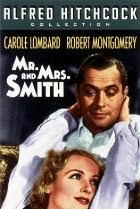Year 6, Day 140 - 5/20/14 - Movie #1,738
BEFORE: You can tell for sure that the seasons have changed, because it's now impossible to go to any restaurant in midtown NYC, even with the expanded outdoor seating. Yesterday I had to walk three extra avenue blocks to get some decent BBQ food - which is OK, because it allowed me to work up an appetite, and then I got to walk off the food on the way home.
Tonight I snuck out to see "The Amazing Spider-Man 2", which technically is another rules violation, but since I make the rules I can grant myself an exemption. I'll be reviewing this film in July just before Comic-Con (which should give me extra time to pack and prepare for the Con) and if I wait until then to watch the film, it will probably be gone from theaters, and not yet available on PPV. So I have to bend my own timeline of films, but it's for the greater organizational good.
Linking from "Foreign Correspondent", Joel McCrea was also in a film titled "The Single Standard", along with Robert Montgomery.
THE PLOT: A comedy about a couple who learn that their marriage was not valid.
AFTER: On first looks, this one doesn't seem to make much sense - Alfred Hitchcock made a romantic comedy? With no spies, no false accusations of murder, no actual murder? It makes about as much sense as Woody Allen making a time-travel sci-fi film (wait, he did do that, didn't he?). You have to figure that the screwball comedy genre was HUGE back in the day, and I think when you look at the release date of "The Philadelphia Story", things start to make a bit more sense.
But then we come to the actual plot - a New York couple is visited by an Idaho official who tells them that due to a strange legal technicality (something about a river? It's a mishap, the exact details are not important) they are not officially married. Geez, you would think that just a simple act by the state legislature would just retroactively correct this, and that would be much easier than traveling across the country and tracking everyone down.
The trouble is, this is the sort of couple that is known for their multiple-day, knock-down drag-out fights, which are usually followed by multiple-day make-up make-out sessions - so it's tough to see how he maintains a legal practice when he's away from the office for days at a time. The next problem is, the film opens on a breakfast after a several-day lovefest, and it wasn't clear at first that this followed a large fight.
Here's where Hitchcock proves that he doesn't really understand the battle of the sexes - just because some couples fight, it doesn't mean that fighting is inherent to marriage. I wouldn't say that a couple that fights for days at a time is having a healthy relationship - and he's setting out here to make the audience feel that this relationship is worth saving - but is it? Mixed messages, Hitch. They make a point of saying that they're above jealousy, they've worked out little ground rules for each other, so which is it, are they rational people, or are they not?
Next problem - the official who tells them that their marriage is not official even makes this point: regardless of whether or not the paperwork was filed correctly, they have still been living together for three years. So, in the eyes of the law, what they have at the very least, is a common-law marriage. They can get a new marriage license, sure, but they don't need it. The same law that brought them together, even with it's little screw-up, also states that their relationship, for all intents and purposes, is a marriage. So why fly off the handle?
Because the husband answered a question asked by his wife the previous morning - namely, "If you had it all to do over again, would you still marry me?" Guys, this is a trick question, right up there with "Does this dress make me look fat?" and "Do you think she's prettier than I am?" There is simply NO good way to answer these questions, unless you can say, "Hey, look over there!" and then disappear into the shadows like Batman, or use one of those mind-wiping devices from "Men in Black". I do not condone giving your wife a concussion, even if that gets you out of a tough situation.
Mr. Smith then has to re-romance his own wife, which wouldn't have been necessary if she had only listened to that point about common-law marriages. He has to compete for her hand with his best friend (some friend), or was that his business partner? (either way, some partner). The former (?) Mrs. Smith gets a job, but when her boss finds out that she's (sort of) married, that's grounds for dismissal?
So, even after you factor in WHY this film was made, it still doesn't make much sense. Really, this was just a sneaky way to deal with divorce and infidelity without ACTUALLY depicting divorce and infidelity. Hitchcock still had to work around the production code, which stated that unmarried people couldn't have sex, but married people could. I think this is mostly to blame for a very clunky plotline.
Also starring Carole Lombard (last seen in "To Be or Not to Be"), Charles Halton, Jack Carson (last seen in "A Star Is Born"), Betty Compson, Patricia Farr, Gene Raymond.
RATING: 4 out of 10 nosebleeds
Subscribe to:
Post Comments (Atom)


No comments:
Post a Comment